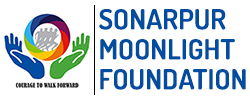To create a space where participants can think together in a place of safety and mutual trust, engage in collaborative work and arrive at your outcomes in an organized and structured manner.
Our Services
sonarpur moonlight foundation services
-
Workshop & group training
-
Clinical CounselingIs a skill area of clinical psychology that can help people overcome emotional or mental health difficulties. Clinical counselors work with clients to develop coping strategies, understand behavioral patterns and improve their mental wellbeing. They can also help clients improve their self-esteem, communication skills and emotional resilience.
-
Assessment Psycometry
Is a psychology examination that is used to measure an individual’s personal characteristics. Through specialized testing measurements, assessments, scales, graphs and activities, psychometrics can be used to objectively assess a person’s behavioral style, intelligence and knowledge.
-
Special Education
Is a range of services that can help children with disabilities learn and participate in our institute. It is designed to meet the individual needs of each child, whether they have physical, emotional or behavioral disabilities. Special education programs (IEP) are developed with the help of parents or guardians. IEP are based on a child’s developmental features, educational needs, performances and they include supportive educational services. IEP’s are reviewed at least once a month and parents should monitor child’s progress and keep in contact with the professionals and IEP team.
-
Day Care center
Day care for psychiatric patients can be effective in returning the patient to a normal life in the community or for reliving the strain on a family. Objectives should be clearly defined with the therapeutic team working closely together.
-
Screening and Counselling of Viral Hepatitis
Viral hepatitis screening can be done through blood tests to detect antibodies produced by the body’s immune system to fight the virus. Screening can be appropriate for parental screening or when symptoms like jaundice, anorexia or dark urine appear or after a known or suspected exposure to the virus.
Counselling may be needed to help clients understand their diagnoses and take steps to reduce the risk of spreading the illness or worsening their prognosis. Clients may also have concerns about telling loved ones about their diagnosis, transmitting the virus to others or pregnancy and hepatitis treatment.
-
IPD Facilities
Mentally ill people may fail to take their medication, obtain adequate nutrition, perform effective selfcare and engage in beneficial social relationships. Mental health treatment facilities offer a structured and supportive environment for people to receive comprehensive care for their mental health issues.
In IPD facilities the goal of detoxification also called ‘detox’ or withdrawal therapy is to enable you to stop taking the addicting drug as quickly and safely as possible. For some people, it may be safe to undergo withdrawal therapy on an outpatient basis. Others may need admission to a hospital or residential treatment center.
-
Rehabilitation
Is a comprehensive and multi-disciplinary treatment. It involves a wide variety of interventions. These interventions help the patient to integrate into the mainstream of society and improve his/her quality of life. These services are sometimes called ‘rehab’ services. They offer a range of therapies including treatment, counselling and support. This means you do not have to do it alone. Drug and alcohol rehabilitation helps you stop use of drugs and alcohol.
-
Detoxification
Detoxification from drugs and alcohol can be dangerous. A medically assisted detox can reduce withdrawal symptoms and ensure safety.
Detoxification (detox) is the process of clearing the body of drugs or alcohol that an individual has consumed. The purpose of detox is to safely manage withdrawal symptoms when someone stops taking drugs or alcohol. Everyone has a different experience with detox. The type of drug and how long it was used affect what detox will be like. Medications used in detox help keep former users comfortable while the drugs leave their body. It can take days or months to get through withdrawal symptoms for most drugs. The length of withdrawal depends on a number of factors including:
- Type of substance the user is addicted to
- Duration of addiction has lasted
- Method of abuse (snorting, smoking, injecting or swallowing)
- Amount of substance taken
- Family history
- Underlying medical conditions.
Get started in just 3 steps

make an enquiry


